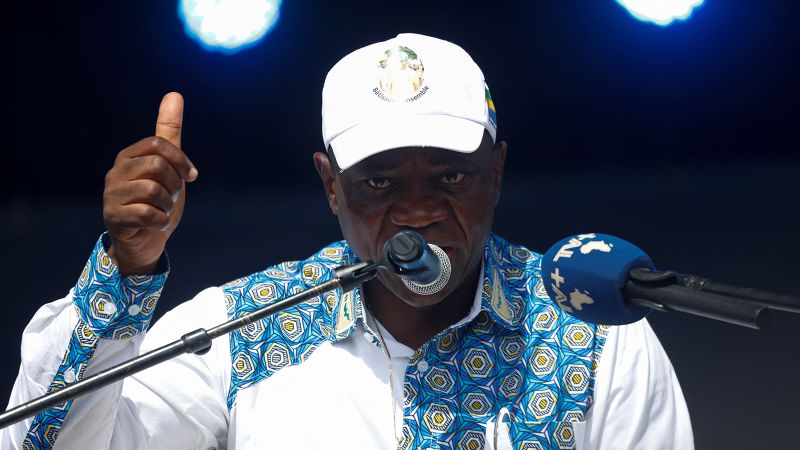Gabon Coup Leader Elected President: A Surprising Turn of Events
The recent election of General Brice Oligui Nguema as president of Gabon following a military coup has sent shockwaves through the African continent and beyond. This unexpected turn of events raises significant questions about the future of democracy in the nation and the implications for regional stability. This in-depth analysis explores the coup, the election process, and the potential ramifications for Gabon and its neighbors.
The Coup: A Swift and Seemingly Bloodless Takeover
On August 30th, 2023, a group of senior military officers announced a coup d'état, ousting long-time President Ali Bongo Ondimba. The coup, which unfolded with surprising speed and efficiency, was initially met with a mixture of surprise and concern. While reports of violence were minimal, the power grab still represented a significant blow to the established political order. The military junta, led by General Oligui Nguema, cited electoral irregularities and a lack of inclusive governance as justifications for their actions.
Key Players and Motivations
Understanding the coup requires examining the key actors and their potential motivations. While the official reasons given by the military focused on electoral reform and good governance, analysts suggest deeper underlying issues:
- Succession Concerns: Ali Bongo Ondimba's health had been a subject of speculation for years, raising concerns about a potential power vacuum and a struggle for succession within his family.
- Economic Inequality: Gabon's vast oil wealth hasn't translated into widespread prosperity for its citizens, fueling resentment and discontent amongst various segments of society.
- Political Stagnation: Decades of rule by the Bongo family led to accusations of authoritarianism, corruption, and a lack of political inclusivity.
The Election: A Questionable Legitimacy?
Following the coup, General Oligui Nguema was swiftly appointed as the transitional president. While the circumstances surrounding his ascension are far from typical democratic processes, he was later confirmed as the president. This raises critical questions about the legitimacy of the process and the future of democratic institutions within Gabon.
Concerns Regarding the Election
The speed at which the transition occurred and the absence of a free and fair electoral process, as typically understood, casts a shadow on the legitimacy of General Oligui Nguema's presidency. International observers and human rights organizations have expressed serious concerns about the lack of transparency and due process.
- Lack of Transparency: Details about the precise mechanism of Oligui Nguema's selection remain scarce, raising concerns about a lack of transparency and potential backroom dealings.
- Violation of Democratic Norms: The coup itself represents a fundamental violation of democratic norms and principles, undermining the integrity of the electoral process.
- International Condemnation: Many international bodies have condemned the coup, calling for a return to constitutional order and a respect for democratic processes.
Implications and Future Outlook
The long-term consequences of the coup and the subsequent election of General Oligui Nguema remain uncertain. Several key implications warrant further consideration:
- Regional Stability: The coup in Gabon could potentially trigger a ripple effect in other parts of Central Africa, where similar issues of political instability and authoritarian rule exist.
- Economic Uncertainty: The political upheaval might deter foreign investment and disrupt Gabon's already fragile economy, especially considering its reliance on oil revenue.
- Human Rights Concerns: Concerns remain about the potential for human rights abuses and the suppression of dissent under the new military-backed regime.
Moving Forward: The international community's response will play a crucial role in shaping the future of Gabon. Pressure for a swift return to democratic governance, coupled with support for transitional justice and inclusive dialogue, are essential to restoring stability and preventing further violence. The situation remains fluid, and the coming months will be critical in determining the trajectory of Gabon's political future. Only time will tell if General Oligui Nguema's leadership will truly usher in an era of reform or solidify a new form of authoritarian rule.
